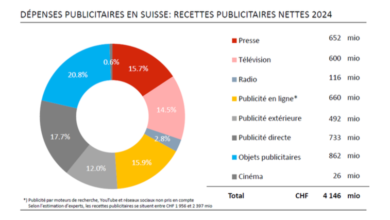Future Perfect
 Perhaps the most telling moment of my recent trip to Korea happened upon landing back in Paris.
Perhaps the most telling moment of my recent trip to Korea happened upon landing back in Paris.
Groggy after a 12 hour fight, the passengers stumbled into each other as they disembarked into a glass passage at Charles de Gaulle airport. The exit door of the passage was closed. Through the glass, the jet-lagged travellers could see an Air France attendant waiting for them at another exit, about 100 meters below. As she stood patiently with her walkie-talkie in hand, her bleary eyes watched with puzzlement the narrow hallway above filling up with more and more passengers from the bottomless Airbus. It took her about 45 minutes to finally use the walkie- talkie, and then take the escalator up to open our door.
A group of Korean businessmen, their suits still miraculously crisp after the flight, walked through swiftly, as the French travellers stopped to bark at the AirFrance employee. “It is not my fault”, she replied – “I was sent to that door”. The crowd proceeded to take an escalator down to a train shuttle which was to take them to the main terminal. Below, a train beckoned with widely open doors, while two relaxed Air France employees stood in the middle of the platform chatting.
The moment our Korean businessmen stepped off the escalator onto the platform, the empty train closed its doors and left. Hundreds of passengers, following closely behind, stood agape, and I expected a big loud row to start with the Air France contingent. But something else happened. The Koreans started to laugh. Their amusement spread to the rest of the escalator, and soon it seemed the whole exhausted sleepy Airbus crowd was laughing – while the two Air France employees stared in surprise bordering indignation.
 For, in fact, the Koreans were laughing at them, as well as at the system that produced this absurd inefficiency — in a way one would laugh at a comedy of errors from the days of Moliere. It would become part of their Paris experience, together with rude waiters, pompous service and interminable business meetings contorted by the egos of their French counterparts. If you travelled back in time and saw something absurd like that, wouldn’t you just find it amusing? For you can always go back to the Future.
For, in fact, the Koreans were laughing at them, as well as at the system that produced this absurd inefficiency — in a way one would laugh at a comedy of errors from the days of Moliere. It would become part of their Paris experience, together with rude waiters, pompous service and interminable business meetings contorted by the egos of their French counterparts. If you travelled back in time and saw something absurd like that, wouldn’t you just find it amusing? For you can always go back to the Future.
Such an airport incident is simply unimaginable in Seoul—a city light years ahead of the Old World. Your will not feel jet-lagged here, as long as you go out and join the rhythm of this metropolis, whose energy and drive are contagious. From perfectly structured business agendas, to the impeccable, yet invisible service in the hotel, my first trip to South Korea was a lesson of how business travel ought to be.
Much is written today about South Korea being a mobile hotspot of the world – and one imagines an even crazier version of Tokyo’s Shibu-ya, with pink-haired teenagers in cowboy boots and an air of digital overdose. Yet, to my surprise, the young Koreans would more likely wear a slick suit, and their cellphones are hardly the latest high-tech gadgets with scores of shiny yet useless features. In fact, the latest over-the-top models are exported to the West, while Koreans stick to simple handsets which do exactly what they want them to do – which is quite a lot.
This seems to be the case for every digital project or business idea, for every new development in Seoul: nothing is superfluous or showy, everything is geared to a simple logical purpose and, in the end, it simply has to work. Combine this approach with Bladerunner architecture, best broadband and mobile technology in the world, impeccable service, a government of environmentally-minded politicians and a true openness to both East and West – and you get a nation already one step in the Future. And, as I learned on coming back to France, a nation with a great sense of humour – last but not least condition for success.





